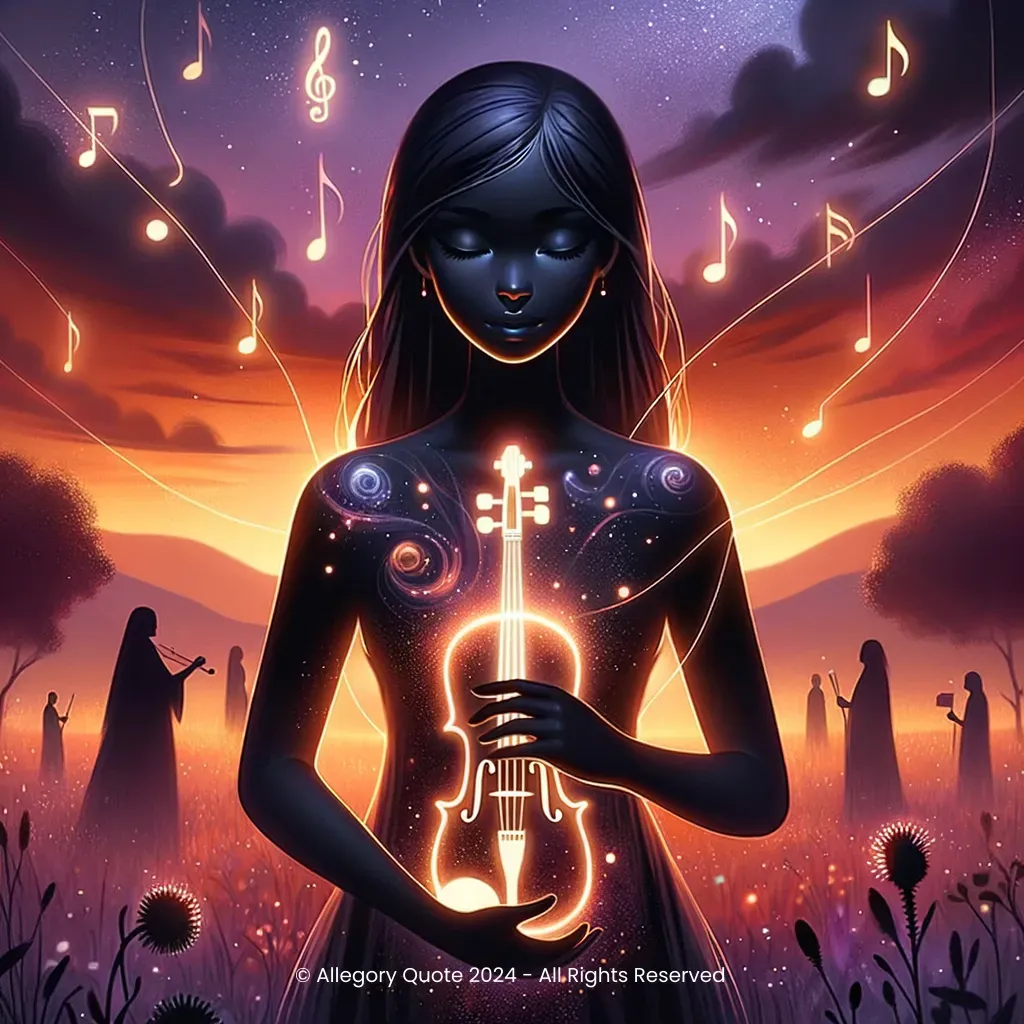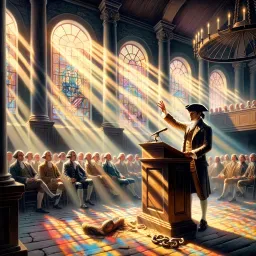Where words fail, music speaks

0
0
0
0
- Meaning
- This phrase suggests that when language is insufficient to express profound or complex emotions, music has the power to convey those feelings. Music can evoke a deeper and often more intuitive understanding of experiences that words may struggle to encapsulate. It speaks to the universal language of music that can transcend cultural and linguistic barriers, touching people's hearts in ways that words sometimes cannot.
- Allegory
- The serene figure represents the individual finding solace and expression through music. The tranquil meadow symbolizes peace and the universality of music transcending spoken language. Twilight signifies a moment of reflection and emotion. The glowing musical instrument highlights the centrality and power of music. The vivid musical notes versus the muted speech bubbles emphasize music's ability to convey what words cannot. The figure’s closed eyes and smile suggest an inner peace and the profound connection that music fosters.
- Applicability
- In personal life, this can mean turning to music for comfort, inspiration, or a means to connect with others on an emotional level. It applies to situations where emotional expression is crucial but difficult to articulate. Whether through listening, playing, or composing music, individuals can find an avenue to process and share their emotions, reduce stress, and achieve a sense of connection or healing.
- Impact
- This phrase has had an enduring impact on both the literary world and the music community. It emphasizes the power of music and has inspired artists, musicians, and storytellers to recognize and celebrate music's unique ability to convey what cannot be spoken. Often cited in discussions about the arts and emotional expression, it reinforces the idea that music is a vital form of human communication.
- Historical Context
- Hans Christian Andersen lived during the 19th century (1805-1875). The phrase captures the Romantic era's embrace of emotion, nature, and individualism, emphasizing the emotive power of artistic expression, particularly through music.
- Criticisms
- While widely embraced, some may argue that the phrase could downplay the power of words or suggest they are insufficient in comparison to music. However, such criticisms largely depend on context; both words and music have their unique strengths and limitations in different situations.
- Variations
- Variations of this phrase often revolve around the same core idea — the ineffable power of music. Cultures around the world have their own sayings and beliefs that highlight music as a profound means of expression, transcending the limits of ordinary speech.
-

Know thyself.
-

Desperate times call for desperate measures.
-

Heaven has no rage like love to hatred turned, nor hell a fury like a woman scorned.
-

Speak of the devil.
-

Give me liberty, or give me death!
-

Tears are the silent language of grief.
-

A foolish consistency is the hobgoblin of little minds.
-

I have always done my duty. I am ready to die. My only regret is for the friends I leave behind me.
No Comments